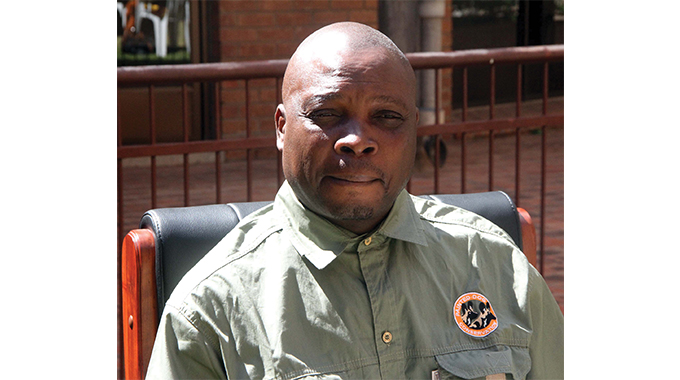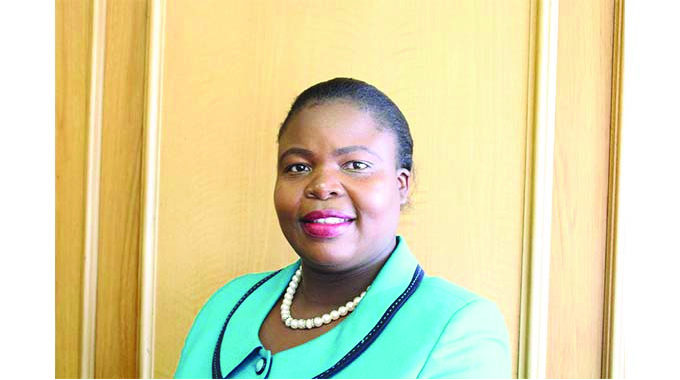Concern over slow uptake of ERRP2 allocated funds

Leonard Ncube, Victoria Falls Reporter
FORTY-ONE percent of roadworks earmarked for rehabilitation under the Emergence Road Rehabilitation Programme (ERRP2) has been done with urban local authorities blamed for causing slow progress in the national project.
President Mnangagwa launched the US$400 million ERRP2 programme in March this year premised on the basis that roads are the network that promote beneficial social and economic activities through ensuring a smooth flow of goods and services. The programme is in four phases spread over three years.
In an interview at the close of a roads authorities workshop organised by the Zimbabwe National Roads Authority (Zinara) here, Transport and Infrastructural Development Permanent Secretary Engineer Theodiuos Chinyanga said Government was generally happy with progress achieved in the first year of the three-year ERRP2 programme.
He said the biggest concern noted so far was slow uptake of allocated funds by roads authorities where $8 billion of the $16 billion that had been allocated had been used, and the other half remains unclaimed.
It has been established that some of the reasons for local authorities failing to draw down their budgets are that some were slow in starting projects, some lacked human capacity to procure, others did not understand what was required in terms of submitting projects for approval and also shortage of equipment and materials.
“We are here to review activities by road authorities over the past year so that we can plan to correct our mistakes as we move forward.
As we go forward, we have noted that there was slow uptake of funds that were available, with around 51 percent used which means 49 percent of available resources were not utilised.
“However, we are happy with the achievements although we could have done much better had people responded early.
Overall, in terms of the targets that we had set ourselves, we are around 41 percent, mainly being pulled back by urban local authorities because in terms of reseals that should have happened more in urban local authorities who have surfaced roads, but you would see that against the set targets only just about 8 percent was resealed,” said Eng Chinyanga.
He said this was the reason for the conference, to share experiences, identify challenges and propose solutions so that going into the New Year, everyone will be geared to make sure roads are restored to an acceptable standard within the confines of the economy.
Eng Chinyanga said the project surpassed targets in grading, drainage structures maintenance and vegetation clearing, which are largely on the countryside.
“On grading we outshined ourselves at 16 700km against a target of 16 300km while on drainage structures we had targeted 1 672 and we managed to do 2 075, which is a 176 percent above the target.
The reason is that as we were doing our work, we identified more structures that needed to be worked on.
Vegetation clearing was one area which did well. There was too much growth along our roads and of the targeted 24 000km, we have now managed 23 000km,” said Eng Chinyanga.
He said in terms of re-gravelling the project performed badly as only 3 000km out of 8 000km were done, making 34 percent. About 8 573 drains were worked on out of 22 000.
“Generally, I would say the slow uptake of funds is attributable mainly to urban local authorities who have longer and more potholed surfaced roads.
They have their own peculiar problems which mainly hinge around human capacity in terms of procurement staff and not working in totality as a team, that’s what drew them back and made the whole nation fail.
“Rural local authorities did their best. In essence we are saying this was a first year, it started late but still we managed to show something for it,” he said.
The Permanent Secretary said a request had been made to Treasury not to take back the unused funds so they can be kept in a dedicated account and be used for emergencies or rolled over to next year.
Closing the conference earlier, District Development Fund (DDF) Permanent Secretary Mr Christopher Shumba said there is need for internal and external monitoring and evaluation of road projects as he called for inclusion of Procurement and Regulatory Authority of Zimbabwe members into the ERRP monitoring team to address some procurement issues.
He challenged local authorities to improve on their mandate saying good roads portray good governance activities to a particular community, with poor infrastructure likely to affect councils as Government can take over maintenance where there is failure.
“There is need for the ERRP chair to check on the low uptake of funds by authorities so as to properly diagnose the real challenge.
Road authorities should desist from abusing the emergence procurement facility to buy things that are not an emergency and it should be known that Zinara does not owe any contractor funds, but only has road funds for roads authorities which can only be accessed after acquittal of works done,” he said. — @ncubeleon











Comments